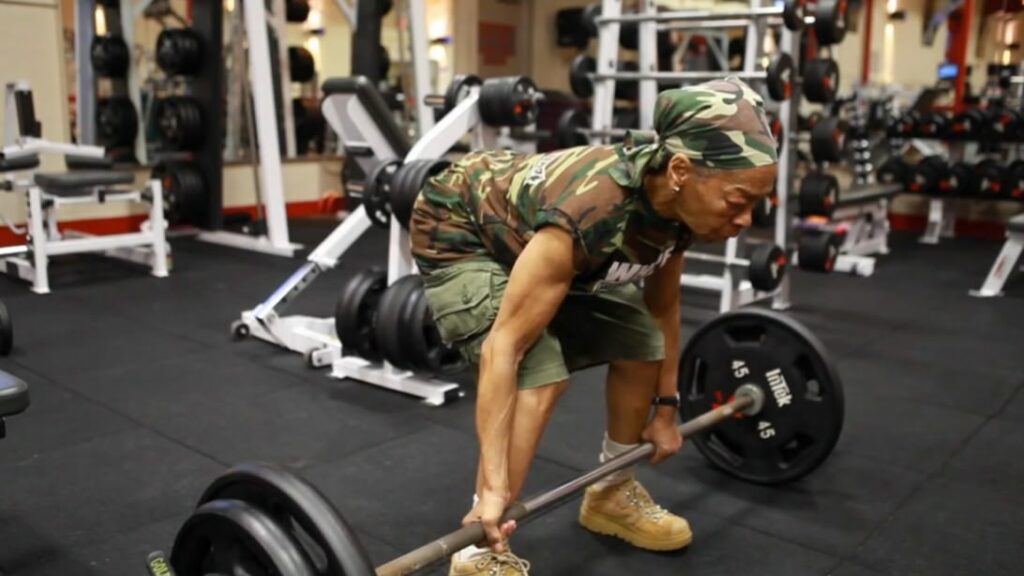It’s widely thought that lifting heavy weights is strictly the domain of young, male meatheads. Women are often worried they’ll get “too big”. People over 40 are worried they’ll injure themselves. People who want to lose weight think that it serves no purpose in their routine, and often athletes see little value in training that seems non-specific to their sport. I would argue however that lifting heavy is even more essential for these groups than it is for the typical bro that just wants to look good in the mirror. Here’s what lifting heavy will do for you:
- Increase your metabolism
Metabolism literally happens in your muscles. More muscle means more stuff being metabolized, even while you’re doing nothing! One of the reasons people who lose weight quickly tend to also gain it back quickly is because when you lose fat that fast you also lose muscle. It’s also common for a person’s resting metabolism to decrease as they get older, which is largely due to a decrease in muscle mass. When you lose all that muscle, your metabolism slows down and it’s hard to keep the weight off. If you want to lose weight and keep it off, I would recommend only trying to lose 1% of your body weight per week in order to better maintain existing muscle mass, and be sure to incorporate lifting heavy into your regimen.
- You’ll “tone up”
This is a popular idiom among women especially, who “don’t want to get too buff” but do want some muscle definition. Gaining muscle can change your body composition dramatically, even if you don’t lose any weight. Also, women simply don’t put on muscle nearly as fast as men do due to hormonal differences. Testosterone is an essential ingredient for gaining muscle mass, and men can have ten to twenty times more testosterone than women. That means that even if you’re a woman, lifting heavy and often is even more necessary for you to tone up than it is for a male. Getting “super buff” takes years and years of dedication, so I promise you won’t wake up one morning looking like the hulk.
- Increase bone density
Even elderly people should lift heavy! Loss of bone density is inevitable as we get into our 50s and 60s. Our bones respond similarly to our muscles to weight training by becoming stronger. Lifting heavy can be an excellent preventative measure, as well as something to help keep older adults functional and capable as long as they possibly can be.
*
Be like this lady ^
*
- Improve performance
Many athletes focus almost entirely on the technical aspects of performance and give little attention to strength. Even in sports like Crossfit, I see athletes grinding through met-cons, getting completely gassed with relatively light weight. Consider this: is 30 snatches for time easier with 90% of your 1RM or with 20% of 1RM? Obviously the latter. So even though that work-out demands excellent conditioning and technical ability, increasing your one rep max, i.e. getting stronger, will make it much, much easier for you. The same logic can be applied to practically any sport. Even a marathoner will benefit from strength training, since a stronger marathon runner will be using a smaller percentage of his 1RM to take a stride, than will a weaker marathon runner.
- Decrease Blood Pressure
High blood pressure is another issue you don’t expect to see in the stereotypical gym dude. I think it’s safe to say though that addressing your high blood pressure is more important than perfecting your biceps. But hey, turns out you can do both! Plus, lifting heavy stuff is more fun and more empowering than endless hours on some hamster-wheel-inspired cardio machine.
Safety Concerns: I have written an article on the statistical likelihood of injury in heavy weight lifting, which you can read here. The summary though is that injuries are very rare when done with proper instruction, even relative to other common sports such as basketball and soccer. Finding an experienced coach is the best thing you can do to avoid injury and maximize progress.
I hope this was helpful! Share this with someone who needs it!
-Miles
Works cited:
Cornelissen, Véronique A. “Impact of Resistance Training on Blood Pressure and Other Cardiovascular Risk Factors.” Impact of Resistance Training on Blood Pressure and Other Cardiovascular Risk Factors | Hypertension, hyper.ahajournals.org/content/58/5/950.short.
R., Pratly. “Strength Training Increases Resting Metabolic Rate and Norepinephrine Levels in Healthy 50- to 65-Yr-Old Men.” Journal of Applied Physiology (Bethesda, Md. : 1985)., U.S. National Library of Medicine, www.ncbi.nlm.nih.gov/pubmed/8175496.
“Weight Regain Among.” Weight Regain Among, www.univadis.co.uk/viewarticle/weight-regain-among-biggest-losers-may-be-driven-by-slowing-of-metabolism-402530?utm_campaign=Univadis_Acquisition&utm_medium=TextLink&utm_source=TrendMD.
Elliot, D L et al. “D L Elliot.” Sustained Depression of the Resting Metabolic Rate after Massive Weight Loss., 1 Jan. 1989, ajcn.nutrition.org/content/49/1/93.short.
Loman, Timothy. “Effects of Resistance Training on Regional and Total Bone Mineral Density in Premenopausal Women: A Randomized Prospective Study.” Effects of Resistance Training on Regional and Total Bone Mineral Density in Premenopausal Women: A Randomized Prospective Study – Lohman – 1995 – Journal of Bone and Mineral Research – Wiley Online Library, onlinelibrary.wiley.com/doi/10.1002/jbmr.5650100705/abstract.
“Impact of Resistance Training on Endurance Performance.” SpringerLink, link.springer.com/article/10.2165/00007256-199825030-00005.







0 Comments
Leave A Comment